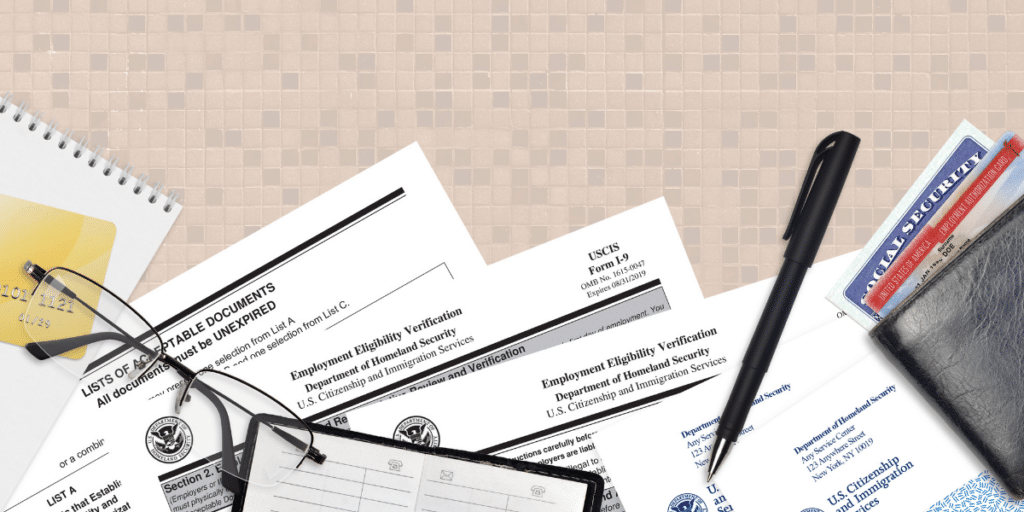Sadly, receiving a bad check is something that is much more common than many people realize. It doesn’t always signify that the person writing the check had foul intentions. Sometimes it is as simple as a small oversight that can be easily remedied with a quick phone call. However, the much more common scenario is that the person writing the check had insufficient funds in their account, and when one check bounces, it begins a landslide of debts coming due. If you receive a worthless check, you can easily find yourself on the bottom end of the priority chain with little hope of ever seeing any of the money from the check.
If the check was for a few hundred dollars, then it probably is not worth more than a simple demand letter from an attorney. But what about the General Contractor who has to pay his subcontractors and receives a $30,000 check that fails to clear the bank due to insufficient funds? He will be forced to pay out of his own pocket or will have to take out a loan and start accruing heavy interest penalties. Often, as a result, he can face lawsuits of his own. In these scenarios, it is vital to know the best way to recoup your money and become a priority for the person who wrote the faulty check.
North Carolina law affords a victim of a worthless check two main options.
Civil Litigation for Bad Checks
The first option is to bring a civil lawsuit. Depending on the amount of the check in question, one may bring a lawsuit in small claims court, district court, or superior court. There are additional damages that may be sought in addition to the worthless check amount if the party who wrote the worthless check is notified in writing and given thirty (30) days to respond according to North Carolina General Statute 6-21.3. These damages are allowed to be three times (3x) the value of the check with a limit of up to five hundred dollars ($500) per check. In addition, one may recoup any bank service fee authorized under N.C.G.S. 6-21.3 and a processing fee authorized under N.C.G.S. 25-3-50.
While this can be an effective strategy, it depends on the circumstances, including the amount of the check and the individual who endorsed it. The downside to bringing a civil lawsuit is that a party can sometimes end up spending months waiting for the case to be heard, and even if successful in obtaining a judgment, there is no guarantee that the Plaintiff will be able to collect on that judgment. The individual who perpetually writes bad checks is likely the individual with multiple judgments against him and few assets to his name.
Criminal Charges for Bad Checks
The second option is pursuing criminal charges. N. C. G. S. §14.107(d) states that writing a bad check “is a Class I Felony if the amount of the check or draft is more than two thousand dollars ($2,000).” A Class I Felony in North Carolina can result in up to twelve (12) months of incarceration.
Pursing criminal charges against a person for a worthless check can be a very effective option in recovering the funds, but there are several important steps to ensure are followed. If done incorrectly, you could find yourself in violation of North Carolina law and face criminal charges of your own.
While some individuals may not be concerned about having multiple civil judgments against them because they have no assets and their credit is already poor, no one wants a warrant sworn out for their arrest. If arrested, many times the charges will be dismissed if the amount in dispute is paid. While you can never threaten to withhold filing criminal charges in return for payment (that can be considered extortion), you can let someone know that writing a bad check in North Carolina is a felony, and you are giving them one final chance to send payment before you decide to move forward with every available legal option.
North Carolina requires very specific steps that must be followed for a worthless check warrant to be issued. Those requirements can be found here: http://www.mecksheriff.com/worthlesschecks.asp. While the Mecklenburg County Sheriff’s website is very helpful and offers guidance as to what steps are required, there is additional information that must be followed that is not listed on the website. It is best to speak with a North Carolina attorney who has handled these situations before to ensure everything is done properly. Upon waiting the required fifteen (15) days, one must go to the police station to file a report. A detective will be assigned your case and will examine all your documents to make sure everything is in order and all paperwork has been filled out correctly. If everything is in order and the district attorney’s office determines the evidence is sufficient, then a felony arrest warrant will be issued (if the amount in question is greater than $2,000).
While neither of these options offer guaranteed immediate results, they do afford some level of protection that can put pressure on the perpetrator of the worthless check to remedy the bad check. If you are the victim of a worthless check, call Dozier Miller Law Group to speak with one of our attorneys today about how to best put you in a position to receive payment for the check.

CATEGORIES
Contact an Attorney
Our attorney offer specialized guidance and representation in a variety of practice areas.

REMEMBER: Always speak with your own attorney
This information is provided for informational purposes only; it is not offered as and does not constitute legal advice.
More Insights and Resources
Learn more about what to expect when facing a family law dispute in Charlotte, North Carolina from Family Law attorneys at Dozier Miller Law Group
Protect What Matters Most: Estate Planning for Every Stage of Life
Thinking about the future doesn’t always come naturally. Many of us get caught up in the day-to-day,…
Will a Separation Protect Me Financially?
Separation is never easy, especially when financial questions start piling up. Can you protect your savings? Will…
Practical Custody Arrangements for Families
Trying to figure out custody arrangements? You’ve probably come across terms like joint custody, primary custody, and…
Future-Proof Your Business Against Form I-9 Changes
Running a business is no small feat. Between managing your team, keeping customers happy, and planning for…
When Do You Need an Attorney for a Breach of Contract Case?
Contracts are the backbone of any good business relationship. They bring clarity, set expectations, and hold everyone…
Navigating Immigration Changes and Their Impact on Employment Law
No matter the size of your business, immigration law affects your ability to hire and retain the…
LGBTQ Families and Stepparent Adoption: What You Need to Know in North Carolina
As a family law attorney in North Carolina, I’ve seen many parents assume that their legal status…
What to Do When You Get a Bad Google Review
If you’re a Charlotte business owner, you know just how important your online reputation is. Around 98%…
Managing Your Immigration Status in 2025
The 2024 election brought significant shifts to U.S. immigration policy, many of which have already begun reshaping…
Plan Now for Summer Child Custody Arrangements
It might not feel like it, but summer break will be here before you know it. For…










